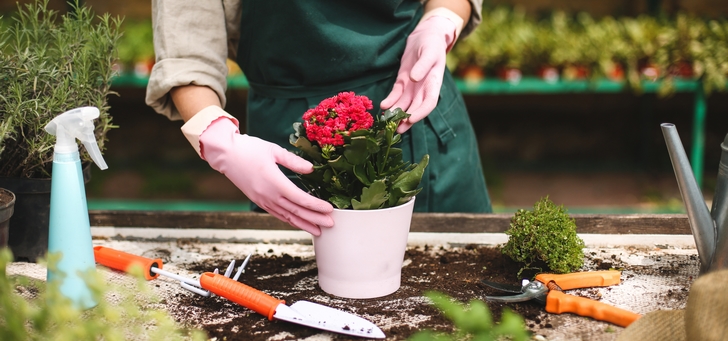Outlook of the French horticulture industry: discover the main key figures!
The 2017-2018 key figures of the French horticulture industry provide a better understanding of the main growth areas in the future.

The French ornamental plant sector is on an upswing! A study published by FranceAgriMer in June 2019 gives landscaping companies an outlook with figures for this market in 2017/2018 to help understand what will be the main growth areas in the future. We summarize the most important elements of the horticulture industry below.

The French horticulture industry is blooming in fertile soil!
The French horticultural sector is in a favorable economic situation. If the number of companies in the sector is falling by 5% per year, sales have stabilized for the first time since 2009, as the FranceAgriMer governmental report for 2017/2018 indicates.
Although the main beneficiaries of this economic situation are companies selling directly to end users, the big horticultural structures working with end retailers are more dynamic.
However all is not plain sailing for the horticulture industry, tempered by three factors observed in 2017:
- Outdoor plant nursery sales are falling, obliging them to increase their overheads to finance destocking.
- The profitability of hydroponic nursery and horticultural companies is straight lining despite extra sales.
- Turnover in cut flowers is growing but the ROI and profitability are low. Labor in these companies is usually family – but there is not enough income to pay them fair wages.
Ornamental plants sector profits from a diversified range of products
In 2017, over 37% of horticulture industry sales were plants and plant pots! Nursery plants accounted for 34%. The other products sold include:
- cut flowers (6.1% of sales);
- perennials and aromatic herbs (5.9%);
- young nursery plants (3.8%);
- young plants and flowerbeds (2.5%);
- and bulbs (1.5%).
Individuals, first-time buyers and chain store fans
13.5% of sector sales were to professional gardeners and public authorities, while 37.3% were through specialized retailers – wholesalers, florists and garden centers. 25.8% were to individuals.
In 2018, 55% of the French bought an outdoor plant, spending almost 2.8 billion euros which boosted a falling market. But where did they prefer to buy them?
The study reveals that if consumers prefer chain stores for the overall plant market with 56% of purchases, garden centers are the top retail outlets in terms of volume with 23% of market share.
VAL'HOR, the French interprofessional organization for horticulture, florists and landscapers, will be a “must” at Paysalia 2019!
Members of this French organization are professionals from the production, distribution, horticultural, landscaping and gardening sectors. Today Val’Hor represents 53,000 landscaping companies!
As a Paysalia sponsor, VAL'HOR intervenes in the National Plant Recognition Competition final organization and the Carré des Jardiniers landscaping contest. Visitors will find Val’Hor in the Village Flowers of France, dedicated to nursery gardeners, horticulturists, gardeners and landscaping professionals.
A unique opportunity to discuss the horticulture industry outlook and to be in contact with the leading-edge of this market!
The horticulture industry is buoyant but faces many challenges. These include water and energy management and the need to promote plants to individuals and public authorities. Trouble spots which must be approached with tact… VAL' HOR remains vigilant to help all the landscaping companies concerned to negotiate these changes flexibly and serenely!
© Photo credit: Anton / stock.adobe.com

